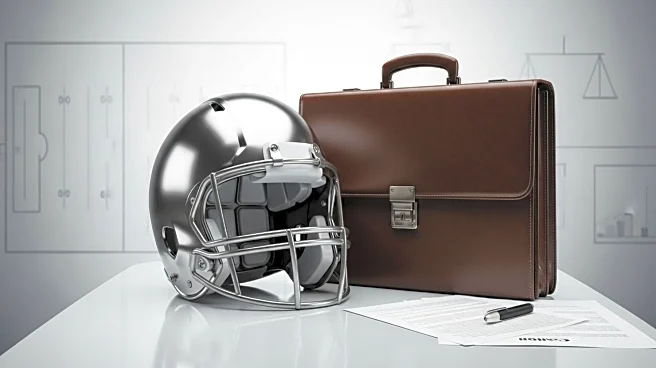What's Happening?
Micah Parsons, a prominent NFL player, was recently traded from the Dallas Cowboys to the Green Bay Packers. This move was influenced by Parsons' strategic use of the current NFL system, which allowed him to avoid playing while still attending team activities, a tactic known as a 'hold-in.' Parsons cited back tightness as the reason for not practicing, which did not appear to be exaggerated or fabricated. This approach allowed him to avoid the penalties associated with holding out for a contract extension. The Cowboys, facing the prospect of a prolonged standoff, decided to trade Parsons rather than risk further disruption. This situation has highlighted potential loopholes in the current Collective Bargaining Agreement (CBA) that the NFL may seek to address in future negotiations.
Why It's Important?
The implications of Parsons' actions are significant for the NFL and its players. By successfully leveraging the hold-in tactic, Parsons has demonstrated a method for players to exert influence over their contracts and team assignments without facing the financial penalties of a holdout. This could lead to more players adopting similar strategies, potentially shifting the balance of power between players and teams. The NFL, which aims to maintain control over player movements and contract negotiations, may push for changes in the next CBA to close this loophole. Such changes could impact player autonomy and the dynamics of player-team negotiations across the league.
What's Next?
As the NFL prepares for future CBA negotiations, it is likely that the league will attempt to address the hold-in tactic to prevent similar situations from occurring. This could involve stricter regulations on player attendance and participation or new penalties for players who refuse to practice without a valid medical reason. The outcome of these negotiations will be closely watched by players, teams, and stakeholders, as it could redefine the terms of player contracts and the power dynamics within the league.
Beyond the Headlines
The ethical implications of players potentially feigning injuries to gain leverage in contract negotiations could become a topic of debate. This situation raises questions about the integrity of player conduct and the responsibilities of teams to verify injury claims. Additionally, the long-term impact on player-team relationships and the overall culture of the NFL could be significant, as trust and transparency become more critical in contract discussions.









